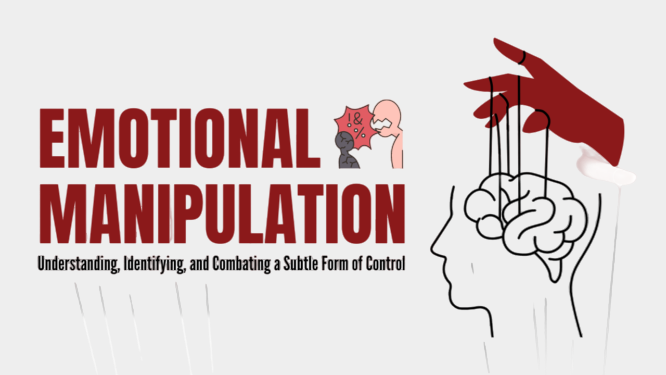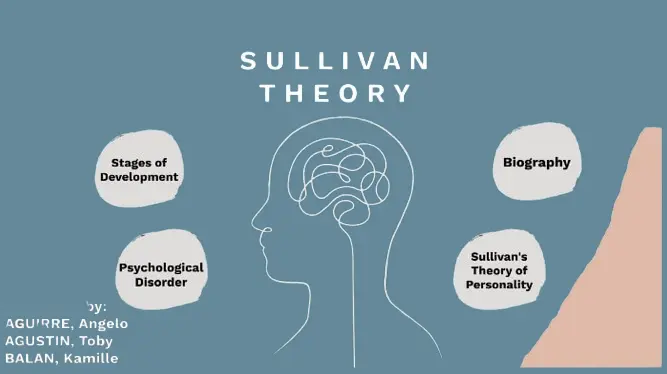Emotional manipulation occurs when someone manipulates your feelings to achieve their goals, control your actions, or change your beliefs.
The act of attempting to control someone or something is called manipulation. When an artist shapes a lump of clay into a piece of pottery, for instance, they are arranging the object to suit their intended purpose by manual manipulation.
Because they are sentient beings with their own mental processes, humans are difficult to manipulate. Your unique needs, interests, and desires serve as a compass throughout life.
Someone else may use emotional manipulation techniques to take control of your journey if they are unable to do it physically.
What is emotional manipulation?
One sort of emotional abuse in which the offender tries to manipulate or emotionally control the victim in order to gain an edge over them is called motional manipulation.1, 2 Relationships that are poisonous or abusive frequently involve emotional manipulation.

There is a range of emotional manipulation in relationships, and it’s not always done with bad intentions. Maltreatment may be overt or hidden. An employee’s emotions are influenced to support positive behavior when a supervisor, for instance, provides them with positive reinforcement and encouragement for their actions. This kind of scenario typically doesn’t indicate malevolent intent.
Emotional manipulation tactic
These are the following tactics :
Love bombing
The act of lavishing someone with excessive attention, love, and strong feelings is known as “love bombing.” Giving gifts, expressing adoration in detail, and devoting all of one’s time and energy to appeasing the sufferer are a few examples of this. A manipulator can swiftly establish intimacy and trust by using love bombing.
Additionally, the victim now has the perfect opportunity to interact. In this sense, a manipulator takes advantage of a person’s innate need to be valued and loved and uses it as a means of making the victim feel more committed to them.
Gaslighting
Making you doubt your recollections, your self-confidence, your sanity, your emotions, and even your identity is the main goal of Gaslighting. This frequently manifests as the abuser labeling you as “mad” or fabricating circumstances to make you doubt your own abilities. This is how a manipulator gradually gains your trust and gets you to follow their instructions without question, giving them total power.
Triangulation
When two people dispute and a third is brought in to help decide who “wins,” this is known as triangulation.3. Triangulation is a tactic used by manipulators to make sure their side wins the debate. This tactic can involve frontloading the information with facts that support their position or selecting a third party who they know would agree with them.

This incentivizes the victim to ask less and eventually to cease asking questions of the manipulator altogether. Additionally, it can be employed to make the victim feel more alone, which makes them more reliant on the manipulator.
Projection
A psychological defensive mechanism known as projection occurs when someone projects their own emotions, traits, or desires onto another individual. This could manifest as the manipulator telling the victim, “You’re so controlling,” when she offers substitutes or encourages her to take care of herself. To avoid how that makes them feel or look, the manipulator casts their desires and feelings onto the other person.
Taking Charge of Your Life
Increasing control is the aim of any manipulation, but a manipulator can also change the course of your life and everyday activities in addition to influencing your emotions and behavior. This can be confining who you can and cannot spend time with as friends, keeping your money under control (financial abuse), or even keeping you from advancing your education.
The purpose of a manipulator’s daily actions is to create the impression that you are dependent on them for decision-making and functioning.
Name Calling
Negative language is frequently used by a manipulator to characterize the victim’s behaviors or personality qualities. This is done with the intention of quietly persuading the victim that they are unworthy of greater care and making them feel inferior. Name-calling frequently begins in mild, insensitive ways that gradually increase in frequency and intensity as the victim grows used to it.
Broad generalizations

When characteristics of one individual are attributed to a whole group of persons within the same demographic, this is known as a generalization. A deceptive person can use the statement, “All women are more focused on themselves than on their partners,” as an example. Because of this, the victim is encouraged to behave or show themselves in a way that the manipulator perceives as agreeable.
Shifting the Topic
Although topic switches are a common occurrence in talks, manipulators employ this passive-aggressive strategy to punish or belittle their targets. A manipulator will shift the topic when the victim raises a legitimate concern during a conversation or gets a complement from someone else in order to keep them from becoming more confident.
An emotional manipulator uses this to make the victim believe that they are the only ones who can complement them and to make them doubt their own knowledge and skill.
Employing Coercion or Threats
Emotional manipulation occurs when someone coerces you into doing something by threatening you.8 Threats to leave you or take away anything significant could be part of this if you don’t do as they say. They might even threaten to harm themselves in this way.
Threats of self-harm should always be taken seriously, even if the person may not have harmed themselves in reality. Encouraging the other person to get professional help if they threaten self-harm is just as vital as maintaining your boundaries to ensure their physical and mental safety.
How to Handle Emotional manipulation
It’s challenging to deal with emotional manipulation since it might make you doubt your judgment and yourself. It may also be more difficult to control manipulation or know when/how to leave an abusive relationship if you traumatize yourself or become attached to the abuser (particularly in a romantic relationship).
These strategies can help you handle emotional abuse:

- Establish boundaries: In order to set boundaries, you must be aware of your demands and limitations and express them in an aggressive and unambiguous manner. These boundaries could have to do with what you’re willing to do, what people can say to you that’s acceptable, how you’ll spend your time, etc. Establishing boundaries enables you to evaluate the potential impact on the relationship of your partner’s inability to acknowledge and accept them.
- Observe any trends: It might not be as alarming as detecting a pattern of persistent and recurrent manipulation if you simply observe one of these symptoms of emotional manipulation. To assist you assess whether there is malevolent intent, keep an eye out for these tendencies.
- Speak with a dependable friend or relative: Although your viewpoint and judgment are ultimately what count, there are instances when sharing your concerns with a dependable friend or relative will enable you to make sense of what you’re seeing and obtain an unbiased viewpoint. Combating any intention of separation from your partner is also beneficial.
- Think about counseling couples: When there is abuse in a relationship, couples counseling is not always advised. This is because it may jeopardize the victim’s security. If they are telling the truth, there can be violence after the session.
- See an expert couple’s counselor to ascertain whether you should proceed only if the emotional manipulation has been modest to moderate, you are not afraid for your safety, and your partner is honest.
- Attend individual therapy sessions. These sessions can assist you in recognizing the emotional abuse, creating a strategy to address it, and managing the feelings it elicits. Having mental health therapy can also help you develop better self-esteem and boundary-setting skills.
- Trust your instincts: Pay attention to your gut if it’s telling you that the relationship isn’t safe or fair, even if it might be easier said than done. Speak with a reliable person if you have a persistent worry so you can figure out how to handle it.
What makes someone a manipulator?

Everybody’s experience and reasons for engaging in manipulative behavior could differ when it comes to its causes.
Psychotherapist and trained sex and couples therapist in Virginia and New York, Dr. Lee Phillps, argues that a pattern of constant manipulation can often develop in childhood.
For instance, someone may have to look for alternative means of feeling safe on an emotional, physical, and other level if they discover early on that their needs cannot be satisfied directly.
He says, “A manipulative person may carry this into adulthood if they were raised in a home where conflict and competition were commonplace.” “As adults, they may manipulate to obtain attention if they were abandoned by their parents or caregivers.”



